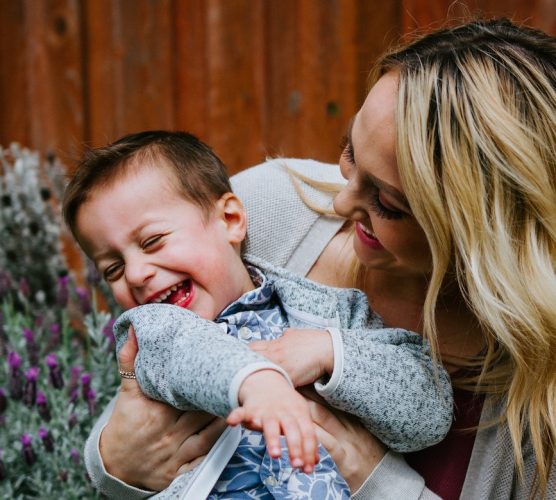When you set out to become a childminder, your Ofsted registration visit is a milestone moment, but it can also feel very stressful. A watchful eye that serves a necessary purpose, Ofsted won’t support you through this. It’s not their job—their main focus is keeping children safe. They won’t give in-depth advice on how to bring your setting from Good to Outstanding, or do anything other than visit to make sure you meet their requirements.
So–we’ve put together a checklist of all the things you will have to do and learn before your Ofsted childminder registration visit, after you have applied to become a childminder. We hope it helps you prepare!
Preparing for an Ofsted childminder registration visit
If you have an Ofsted registration visit booked, some of what you need to know and think about is in our guide to registering with Ofsted. There is much you have to do, and a lot of fees to pay, before you get to this stage! But if your training and checks are complete, here’s what you need to do before your visit:
1. Prepare your home
There are 4 main things to keep in mind when you prepare your home for an Ofsted childminder visit:
- Safety
- Cleanliness
- Sleep space
- Play space
Safety: Inside and out
Risk assess your own home (and garden, if you have one) and think about the following areas and items:
- Electrical appliances and fittings/wiring—are they safe and well maintained?
- COSHH—any cleaning products and dangerous substances. What can you get rid of; what can you lock away?
- PPE—make sure you have the necessary equipment to keep yourself safe too, like an apron, rubber gloves etc.
- Windows—are they safety glass, or ordinary? Can children reach them?
- Food safety—if you haven’t taken a good food hygiene course yet, do it now! Then you will be able to risk assess yourself and answer any questions about safe preparation and handling of food as a childminder
- Heat sources—radiators, space heaters, and fireplaces are all fire hazards
Ofsted won’t check the below, but you probably want to for your own peace of mind:
- Gas appliances—must be tested annually by a Gas Safe registered engineer, and you must keep the certificate
- Water—is it safe to drink? Cold water should not be above 20°C, and hot water in the cylinder should be stored above 60°C
- Asbestos—is your home asbestos free?
Safety: Think ahead
Think practically about how you are going to keep children safe, and what you are going to do if something unexpected happens. You need to show that you have made your home safe for children, and know what to do to keep them from harm.
If you already have your own children you probably know more than you think. It’s just a question of stepping back and looking at your home from an inspector’s perspective.
Fresh and clean
You probably want a clean home anyway—it’s not a bad thing! But put on your Ofsted inspection hat, and take extra steps to clean certain things.
- Make high-contact surfaces extra, especially clean—focus on areas where the children will spend their time, and things they will touch often
- Clean floors are a must for little crawlers
- Create a cleaning schedule and stick to it—it’s also good to have on hand to demonstrate to parents what you do daily and weekly
- Declutter and organise
- Clean outside—garden paths, patio, mowed lawn, trimmed hedge etc.
Although you are not a cleaning person by trade, it is part of your job to keep your setting clean, safe and fun for children. Cleaning shouldn’t be something you only do for Ofsted inspections, but an important part of your typical day as a childminder. It is more important than ever because of COVID-19, so keep it up after you have successfully registered.
Sweet dreams in a safe space
Safe sleep is really important. You don’t have to buy all the equipment you need just yet, but you will have to show the Ofsted inspector where your sleep space will be. Be ready to talk about how you plan to set up the sleep space once you have been approved as a childminder.
Keep these things in mind:
- Remember your safe sleep training
- Where will you put cots (babies and small toddlers) and mats (slightly older children)?
- What mattresses and bedding are you planning to get?
- Is the room dark enough, and pleasantly cool (16–20°C)?
- How are you going to check on the children? (monitors or within ear-shot)
Make room for play
Again, you don’t have to buy specific resources and toys for childminding yet, but you really need to plan. An Ofsted inspector will expect you to know how you are going to use the space, what toys and resources you will get, and how you will use them to follow the EYFS framework.
- What resources will you have to create a learning environment?
- If you need to rearrange the furniture, do it before the visit
- Get pictures of furniture you plan to buy
- How do your resources cover the EYFS framework?
- Do the same for any outdoor space you might have

Play zones and EYFS
Zones for planned activities are a great way to demonstrate your understanding of EYFS to the inspector. Think of how your home can reflect that you are an inspiring, safe, and knowledgeable person for children to spend time with.
Before the visit, you will need to complete training in safeguarding and first aid for babies and children. You will also need some training in the EYFS framework, and what your responsibilities are as a childminder. You can support children so much at this early age, and that’s why understanding early years’ childhood development is really important.
It’s a good idea to also have done some courses in food hygiene, behavioural management and outdoor play. There is so much you can do and learn to keep growing in your role as a childminder.
2. Documents, documents, documents…
There are some documents you will need before you apply to register as a childminder with Ofsted or a childminding agency. Here’s a list of the bare minimum you will need on the day of the registration visit:
- Healthcare declaration
- Photo ID
- Criminal record (DBS) check—for you and any other adults living or working in your home
- Proof of name change (if you have changed your name, for instance through marriage)
- Certificate from completed Safeguarding course
- Certificate from completed Paediatric first aid course
- Employment history (this can be a CV)
- References (at least 2, one professional)
- Proof of address (at least 2—e.g. utility bills or letters from government agency)
- Driving licence, MOT and car insurance—if you will be driving children anywhere
Language skills
During the Ofsted registration visit, the inspector will also check that you—and any assistants working with you—speak English well enough to develop children’s English language skills. It’s also important that no-one smokes at the property, and that you have carried out a risk assessment.
Policies and day-to-day admin
You probably want to think ahead to:
- What insurance you are going to get
- What your rates will be
- How your menu plan will look
- What your welcome booklet for parents will include
- What your budget will look like—for things you need before you start, and supplies, food, and transport costs after your home nursery is up and running
- How you plan to keep records
- What forms and documents you will need
- application forms for children
- reporting incidents
- learning journal
- attendance register
- contract
- safeguarding policy
- complaints policy
Remember that you don’t have to have your home and your business completely ready and set up. You just need to show what you plan to do, and what it will be like when it’s ready. The Ofsted inspector will mainly focus on you during the registration visit: are you a childminder able to provide childcare? Will you be able to follow the safeguarding and welfare requirements? Do you understand the learning and development requirements of the Early Years Foundation Stage framework?
Why do you need an Ofsted registration visit?
Ofsted do visits and inspections to make sure that your environment—and you, as a childminder—are suitable and safe to care for children. They consider safeguarding, EYFS, food hygiene, safe sleep, and stimulating, age-appropriate learning opportunities and resources. What they’re really checking is that you are knowledgeable, and know how to set your home up properly.
Not sure childminding is right for you?
If you’re not sure childminding is right for you, learn more about other childcare careers at Koru Kids.



